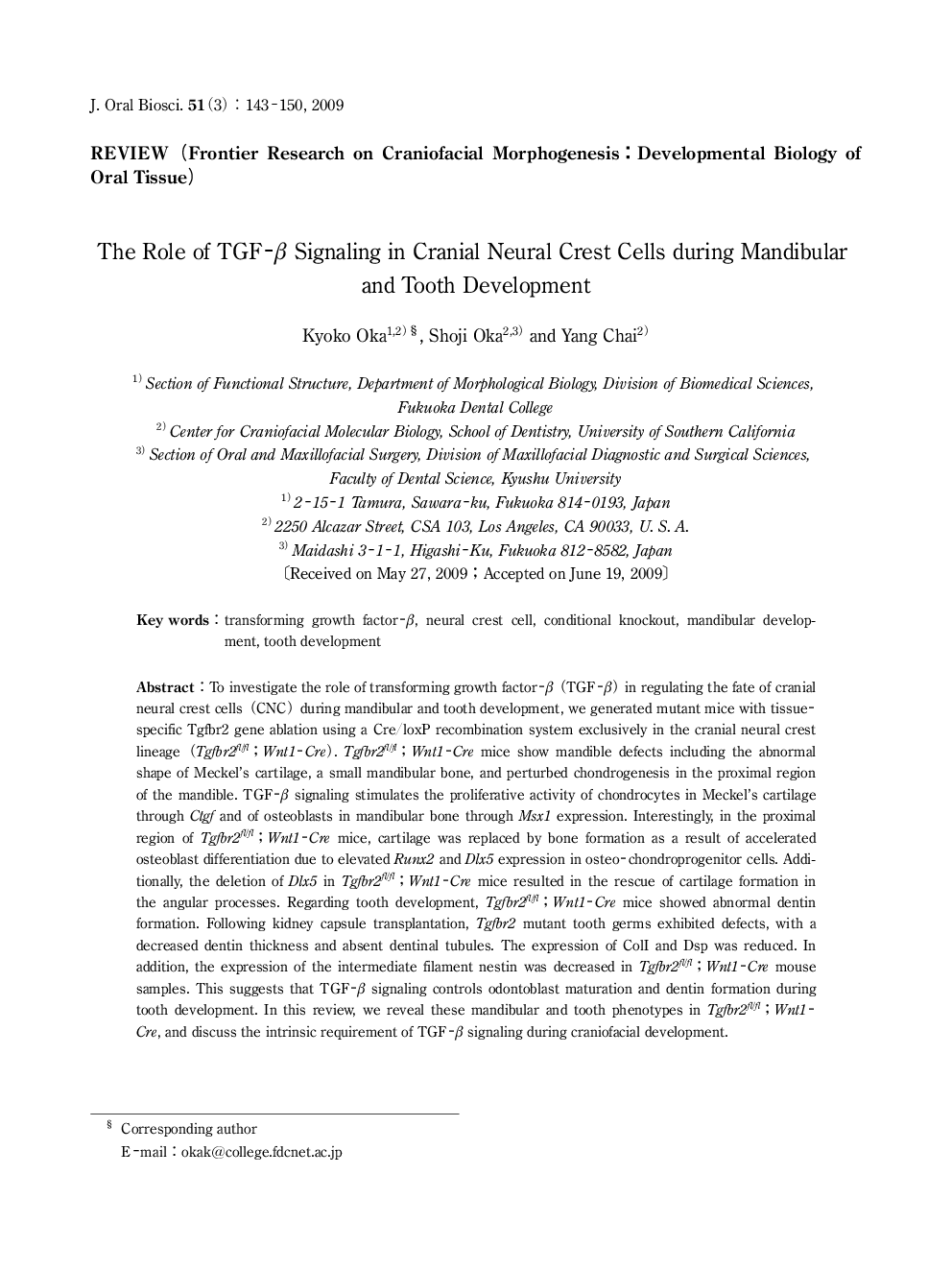| Article ID | Journal | Published Year | Pages | File Type |
|---|---|---|---|---|
| 2776991 | Journal of Oral Biosciences | 2009 | 8 Pages |
To investigate the role of transforming growth factor-β (TGF-β) in regulating the fate of cranial neural crest cells (CNC) during mandibular and tooth development, we generated mutant mice with tissue-specific Tgfbr2 gene ablation using a Cre/loxP recombination system exclusively in the cranial neural crest lineage (Tgfbr2fl/fl; Wntl-Cre). Tgfbr2fl/fl; Wntl-Cre mice show mandible defects including the abnormal shape of Meckel's cartilage, a small mandibular bone, and perturbed chondrogenesis in the proximal region of the mandible. TGF-β signaling stimulates the proliferative activity of chondrocytes in Meckel's cartilage through Ctgf and of osteoblasts in mandibular bone through Msxl expression. Interestingly, in the proximal region of Tgfbr2fl/fl; Wntl-Cre mice, cartilage was replaced by bone formation as a result of accelerated osteoblast differentiation due to elevated Runx2 and Dlx5 expression in osteo-chondroprogenitor cells. Additionally, the deletion of Dlx5 in Tgfbr2fl/fl; Wntl-Cre mice resulted in the rescue of cartilage formation in the angular processes. Regarding tooth development, Tgfbr2fl/fl; Wntl-Cre mice showed abnormal dentin formation. Following kidney capsule transplantation, Tgbr2 mutant tooth germs exhibited defects, with a decreased dentin thickness and absent dentinal tubules. The expression of Coll and Dsp was reduced. In addition, the expression of the intermediate filament nestin was decreased in Tgfbr2fl/fl; Wntl-Cre mouse samples. This suggests that TGF-β signaling controls odontoblast maturation and dentin formation during tooth development. In this review, we reveal these mandibular and tooth phenotypes in Tgfbr2fl/fl; Wntl-Cre, and discuss the intrinsic requirement of TGF-β signaling during craniofacial development.
